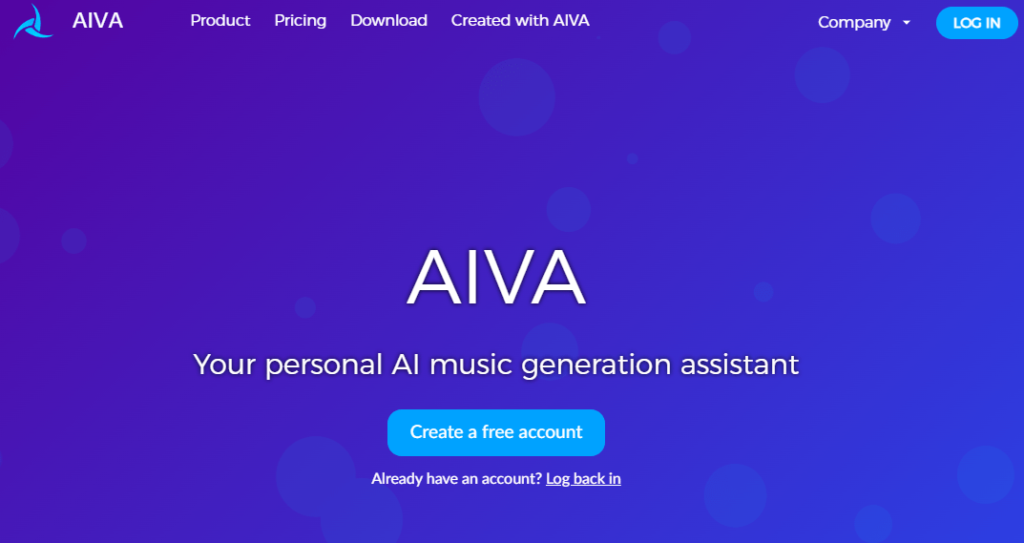The Best AI Music Generators in 2025
The fusion of artificial intelligence and music has unlocked unprecedented possibilities for composers, content creators, and hobbyists alike. AI music generators are no longer novelties—they’re powerful tools reshaping how we create, experiment, and innovate.
Whether you’re a filmmaker needing a cinematic score, a game developer crafting ambient soundscapes, or a marketer seeking catchy jingles, AI platforms now offer solutions that rival human creativity.
But with so many options, which tool stands out? Let’s explore the best AI music generators of 2025, dissecting their features, strengths, and limitations to help you find the perfect match.

What Makes an AI Music Generator “The Best”?
Before diving into the list, it’s essential to define evaluation criteria:
- Output Quality: Does the AI produce professional-grade, emotionally resonant music?
- Customization: Can users adjust genres, moods, tempo, or instrumentation?
- Ease of Use: Is the interface intuitive for non-musicians?
- Licensing: Are tracks royalty-free for commercial use?
- Innovation: Does the tool leverage cutting-edge algorithms for originality?
Using these metrics, here are the top contenders redefining music generation.
1. AIVA: The Composer for Symphonic Brilliance

Overview:
AIVA (Artificial Intelligence Virtual Artist) specializes in classical and cinematic compositions. Recognized by SACEM (France’s music copyright society), it’s trusted by brands like Nestlé and professionals in film scoring.
Key Features:
- Genre Diversity: From classical symphonies to modern electronic beats.
- Customization: Adjust parameters like emotion (happy, tense) and structure.
- Editable Outputs: Export MIDI files for tweaking in DAWs like Logic Pro.
- Licensing Options: Free tier for personal use; affordable subscriptions for commercial licenses.
Why It Shines:
AIVA’s ability to generate emotionally complex orchestral pieces makes it ideal for filmmakers and game developers. Its 2023 update introduced hybrid human-AI collaboration tools, allowing artists to refine AI drafts in real time.
Limitations:
Advanced features require a paid plan, and its electronic/pop genres lag slightly behind competitors.
2. Soundful: The Go-To for Royalty-Free Beats

Overview:
Soundful targets content creators needing high-quality background music for videos, podcasts, or ads. Its algorithm, trained on hits from top producers, ensures radio-ready tracks.
Key Features:
- Template-Based Creation: Choose from 50+ genre templates (EDM, Lo-fi, Corporate).
- Instant Variations: Generate multiple versions of a track with one click.
- No Copyright Hassles: All tracks are royalty-free, even on the free plan.
Why It Shines:
Soundful’s simplicity and speed are unmatched. A YouTuber can generate a custom intro track in under a minute, while startups can brand their videos with professional soundscapes.
Limitations:
Less suited for avant-garde or experimental projects due to its template-driven approach.
3. Amper Music (by Shutterstock): The Speed Maestro
Overview:
Now integrated into Shutterstock’s ecosystem, Amper Music excels at rapid, customizable tracks. It’s favored by marketers and social media managers for its user-friendly design.
Key Features:
- Drag-and-Drop Editing: Modify track length, instrumentation, and intensity effortlessly.
- Collaboration Tools: Teams can co-edit projects in real time.
- API Access: Developers can embed Amper’s tech into apps or games.
Why It Shines:
Amper’s “Create Now” button delivers a polished track in seconds, ideal for tight deadlines. Its partnership with Shutterstock means seamless access to stock audio libraries.
Limitations:
Limited emotional depth compared to AIVA, and subscription costs add up for frequent users.
4. OpenAI’s MuseNet: The Genre-Blending Pioneer
Overview:
MuseNet, from the creators of ChatGPT, uses a deep neural network to blend genres like jazz, baroque, and hip-hop. While less commercialized, it’s a playground for experimental musicians.
Key Features:
- Genre Fusion: Combine styles (e.g., “Chopin meets Beyoncé”) for avant-garde tracks.
- Free Access: Experiment via OpenAI’s demo without signing up.
- MIDI Support: Export and edit compositions in any DAW.
Why It Shines:
MuseNet’s unpredictability sparks creativity. Want a piano piece infused with Afrobeat drums? MuseNet delivers.
Limitations:
No built-in mixing/mastering tools, and outputs require post-production polishing.
5. Ecrett Music: The Scene-Based Innovator
Overview:
Ecrett uses “scene” parameters (e.g., “mysterious forest” or “sports montage”) to generate context-aware music, making it a favorite among video editors.
Key Features:
- Scene Customization: Input setting, mood, and activity for tailored tracks.
- Royalty-Free Library: All tracks are commercially safe.
- Affordable Plans: Unlimited downloads for $4.99/month.
Why It Shines:
Ecrett understands contextual music needs better than most. A travel vlogger, for instance, can generate “uplifting beach” tracks instantly.
Limitations:
Limited control over instrumentation and shorter track lengths.
Comparison Table
| Tool | Best For | Pricing (Monthly) | Unique Edge |
|---|---|---|---|
| AIVA | Film/game scores | 15–15–49 | Orchestral depth & hybrid editing |
| Soundful | Content creators | Free–$29.99 | Instant royalty-free beats |
| Amper | Marketing/social media | 10–10–249 | Speed & Shutterstock integration |
| MuseNet | Experimental music | Free | Genre-blending AI |
| Ecrett | Video soundtracks | 4.99–4.99–14.99 | Scene-based generation |
The Future of AI Music Generation
AI tools are evolving beyond imitation to innovation. Platforms like Google’s Magenta and Sony’s FlowMachines are experimenting with AI that learns from user feedback, creating symbiotic composer-assistant relationships.
Meanwhile, ethical debates about copyright and originality persist, prompting tools like AIVA to adopt transparent licensing models.
Final Verdict
The “best” AI music generator depends on your needs:
- AIVA for orchestral mastery.
- Soundful for hassle-free, commercial-ready tracks.
- MuseNet for genre-defying experimentation.
As AI continues to learn and adapt, these tools aren’t just replacing human composers—they’re empowering everyone to become one. Dive in, experiment, and let AI amplify your creativity.
Also Read: how to get rid of deepseek server busy issue





